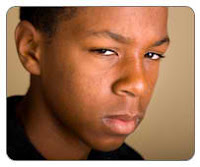Question
We have a 12 yr old son who is not in our primary care, as he lives with his mother and we see him only every other weekend. He was diagnosed with very mild autism, and is very high functioning, i.e. he is not on an EAP getting B's and C's, and although a bit socially challenged does OK with his peers.
Unfortunately he is not being challenged to become more independent, and it would appear as if his mother is trying to hold him back, i.e. he is forced to be in daycare after school with 5 - 10 yr olds, and desperately wants the chance to spread his wings and try an hour after school on his own (with a safety plan, and he has taken and passed the babysitters course). Are there any suggestions on how we go about determining if he can be challenged with more responsibility, i.e. is there a checklist of demonstrated behaviours etc?
Answer
The following lists can help parents, teachers and other caretakers to determine if the child is truly on the high-functioning end of the autism spectrum. Note: It is not expected that any high-functioning child will show all the traits listed in any section.
General intellectual ability—
• asks many questions of a provocative nature
• displays a great curiosity about objects, situations or events
• displays a willingness to accept complexity
• has a high energy level
• has a liking for structure, order and consistency
• has a power of abstraction, conceptualization and synthesis
• has a power of concentration, an intense attention that excludes all else
• has a wide range of interests
• has an interest in cause-effect relations
• has avid interest in science or literature
• has the capacity to look into things and be puzzled
• has the capacity to use knowledge and information other than to memories
• is a good guesser
• is an avid reader
• is an entrepreneur - readily makes money on various projects or activities
• is creative in new ideas, seeing associations, pursuing innovations
• is friendly and outgoing
• is independent
• is involved with many exploratory type activities
• is perceptually open to his or her environment
• is persistent
• is resourceful - solving problems by ingenious methods
• is secure emotionally
• is venturesome, wanting to do new things
• learns rapidly, easily and efficiently
• makes good grades in most subjects
• needs little outside control - applies self discipline
• provides very alert, rapid answers to questions
• retains and uses information which has been heard or read
• reveals originality in oral and written expression
• shows superior judgment in evaluating things
• tends to dominate peers or situations
• uses a large number of words easily and accurately
• uses a lot of commonsense
Specific academic aptitude—
• has a long attention span in areas of interest
• is able to extend learning from these key areas to various situations somewhat unrelated in orientation
• is able to judge own and others' relative abilities in key areas of interest
• is able to show broad perspective on one or more subject areas
• learns rapidly, easily and with less repetition in one or a few specific areas (probably not all subject areas)
• likes or loves one or a few areas of knowledge
• likes to study some subjects more than others
• seeks assistance of others beyond his or age peers in extending knowledge in areas of interest
• shows similar characteristics to general intellectual ability but concentrated around one or a few fields
• spends time voluntarily beyond ordinary assignments on projects of interest to him or her
Creative thinking and production—
• acts spontaneously, intuitively
• always trying to adapt or improve things
• asks provocative questions, challenges parents, teachers, written and other authorities
• can show intense concentration on a task
• can show unusual degrees of originality, concentration and persistent hard work on projects that capture their interest and imagination
• displays energy, sometimes disruptively
• doesn't accept authoritarian pronouncements without own judgment
• doesn't mind being different
• has a keen sense of humor, seeing humor in situations others don't
• is bored with memorization and recitation
• is considered, and perhaps resented, by some peers as "crazy"
• is flexible in thinking patterns
• is fluent in producing and elaborating on ideas
• is intellectually playful, interested in fantasy, imagination
• is uninhibited in expression, sometimes radical
• juggles or redefines elements of a problem or task
• makes unusual associations between remote ideas
• produces unexpected, sometimes "silly" responses
• provides multiple solutions or responses to problems
• readily guesses and makes hypotheses
• retains own ideas in a discussion or collaboration
• senses inconsistencies and discontinuities
• senses when problems exist
• tolerates ambiguity and uncertainty
Leadership—
• can adopt non-leadership roles within a group
• can articulate ideas clearly
• can coordinate the work of several individuals
• can establish the mood of a group
• can give directions clearly and effectively
• can listen to others empathetically
• can stimulate and arouse others
• exercises authority reliably and responsibly
• interacts with others easily showing social skills
• is looked to by others when something must be decided
• is often asked for ideas and suggestions
• organizes others
• recognizes and can articulate the goals of a group
• recognizes skills and abilities possessed by others
• supports others in a group when appropriate
• understands how people feel and how groups function
Psychomotor ability—
• demonstrates endurance, stamina and persistence in physical activities
• demonstrates prowess in physical activities common amongst age peers
• has a suitable body build
• is able to understand the intellectual aspects of psychomotor activities
• is athletic
• is coordinated, balanced and confident in physical activities
• is energetic
• is inventive in constructing or modifying games
• is rhythmic
• likes to play physically
Visual and performing arts—
Music:
• discriminates musical and other sounds well
• enjoys dance and dramatic activities with musical elements
• enjoys musical activities and demonstrates musical feeling
• has good sense of rhythm
• is well-coordinated
• makes up original tunes
• responds readily to rhythm, melody and harmony
• shows tonal memory
• understands musical relationships
• uses music to express feeling or experience
Dramatics:
• brings a dramatic situation to a climax with a well-timed ending when telling a story
• communicates feelings by means of facial expressions, gestures and bodily movements
• demonstrates ability to dramatize feelings and experiences
• demonstrates interest and enjoyment in dramatic activities
• demonstrates understanding of conflict when acting out a dramatic event
• enjoys evoking emotional responses from listeners
• readily shifts into role of another character, animal or object
• uses voice to reflect changes in mood
Art:
• draws a variety of objects
• is interested in other people's art, both appreciating it and criticizing it
• is willing to try out new materials and experiences
• likes to model three dimensionally with clay, soap carving, etc.
• pursues art in spare time
• puts depth into drawing, showing planning and good proportion
• shows originality in modes of undertaking art
• treats art seriously and enjoys it
• uses art to express feelings and experiences
Resources for parents of children and teens on the autism spectrum:
==> Videos for Parents of Children and Teens with ASD
----------





.jpg)


